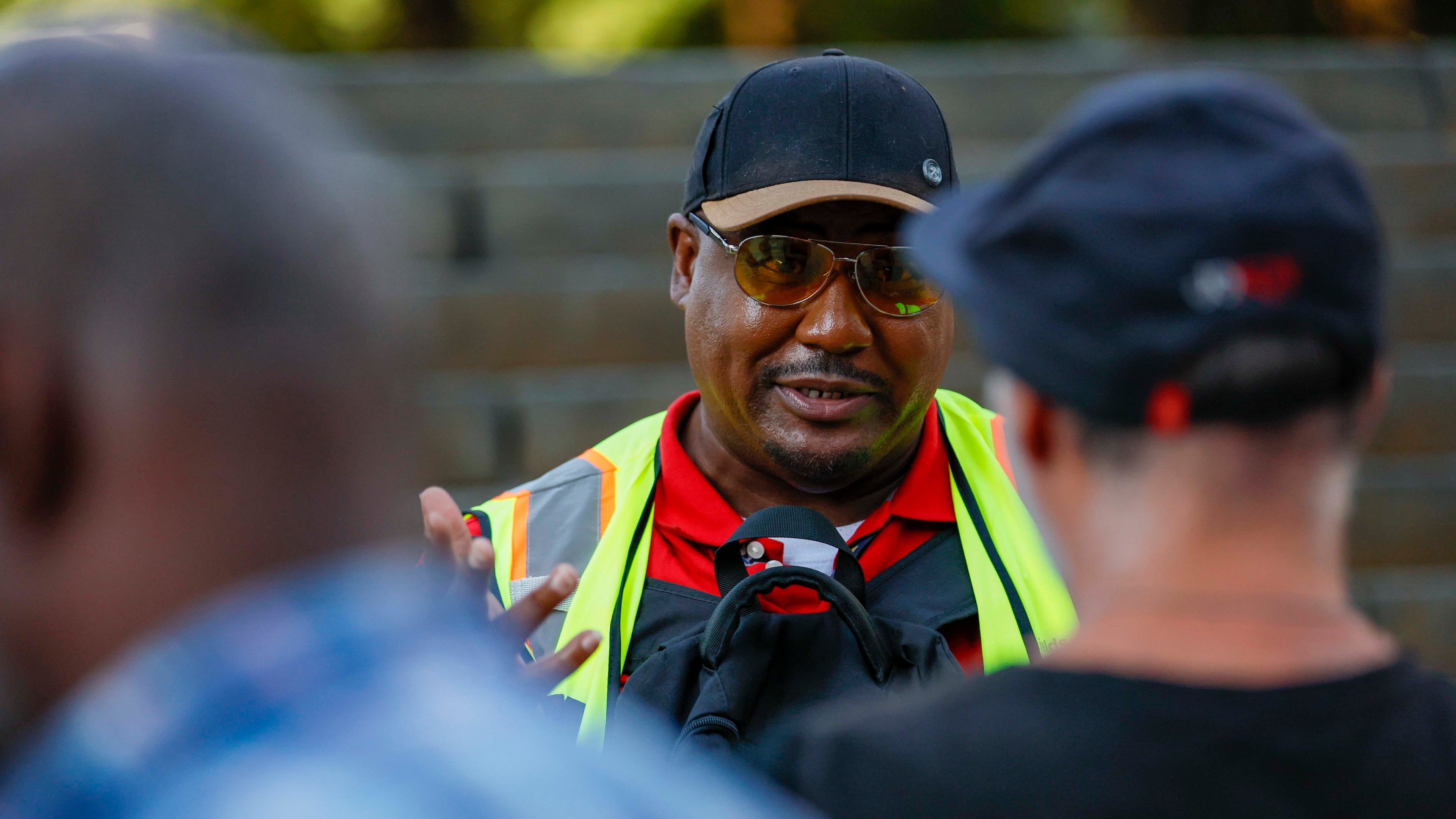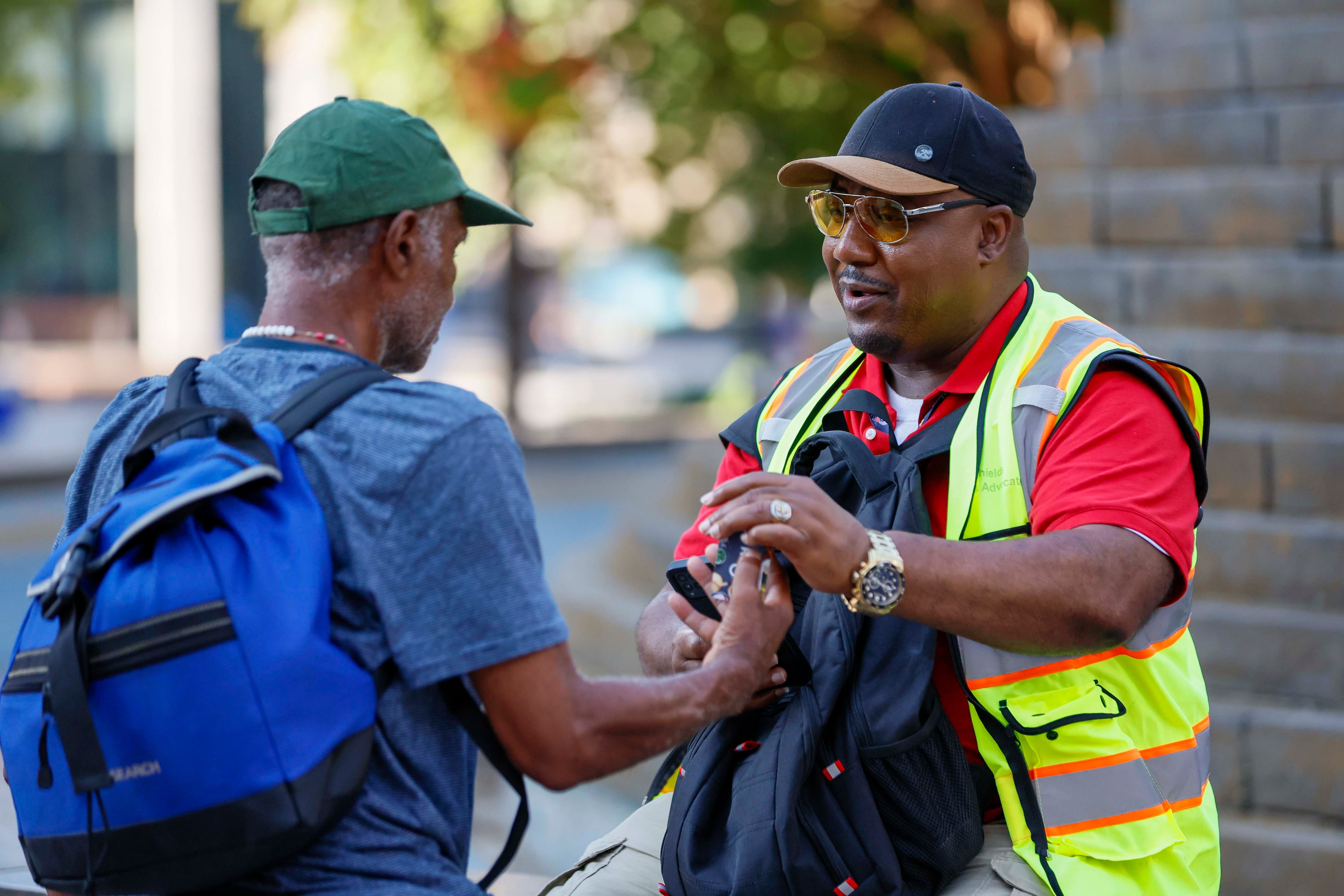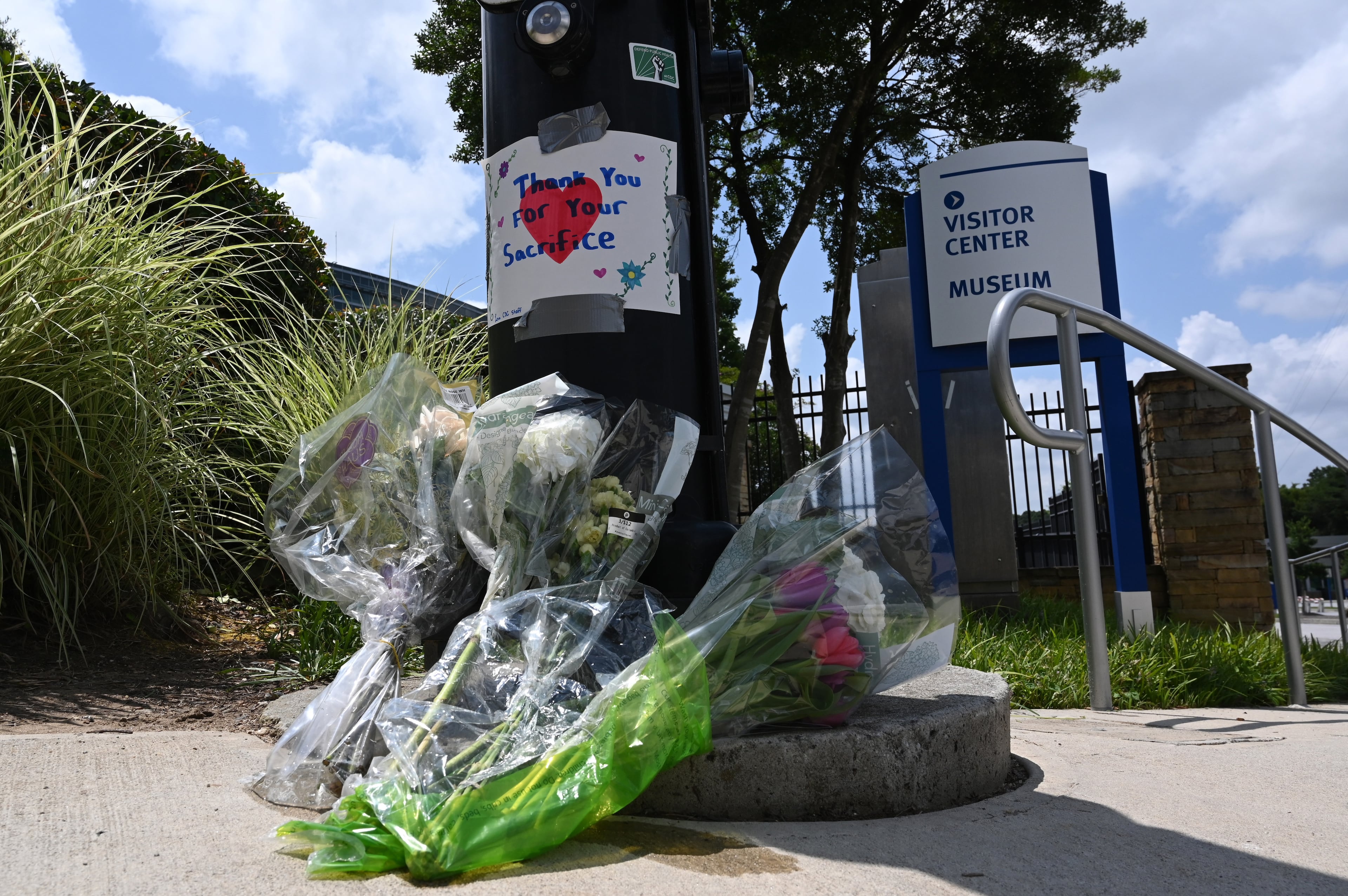Once homeless, man leads survey asking unhoused why they’d turn down shelter

On a recent morning in Atlanta’s Woodruff Park, Richard DeShields posed a question to a 57-year-old homeless man: If someone offered you shelter right now, would you take it?
The answer came quickly, and it was a no.
The man told DeShields about a shelter he hates because it requires people to attend religious services and allows only five-minute showers.
“I’m religious, but I’m not that religious,” the man told DeShields, who was surveying homeless people in the downtown Atlanta park on July 7. The man later acknowledged he would accept shelter if it was at a place that meets his needs.
DeShields, 55, is chair of the Client Advisory Council for Partners for Home, the agency that coordinates the city’s homeless strategy. The advisory council is made up of 16 people who have experienced homelessness.

DeShields has been conducting surveys since earlier this year to shed light on the barriers that cause some people to choose homelessness over shelter and other services. The results inform the agency’s overall strategy as well as its controversial plan, known as “Downtown Rising,” to end homelessness in downtown and house hundreds of people before the FIFA World Cup next summer.
“A lot of them are going through their addiction or they’re going through a mental health crisis,” DeShields said. “They don’t see past all that.”
One woman at the park was frustrated she hasn’t received an apartment and instead was being pointed to shelters that she already knew about. DeShields told her it’s better to stay in a shelter while waiting for a housing opportunity.
“When we come out here and tell you to go to a shelter, we’re not saying we’re going to put you in a shelter and leave you in a shelter,” he told her. “You’re a young lady. We don’t want you to be on the street, so it’s better if you go into a shelter and wait till your number comes up instead of being out here.”
DeShields understands firsthand people’s reluctance to accept short-term shelter. He said he once was homeless and wanted to be left alone before he got housing through one of the programs overseen by Partners for Home.
Results from the surveys of 450 people, conducted in March and July, showed that 96 people said they would not accept shelter for the night if a bed was available — about 22% of people who answered the question. Those who responded could provide more than one answer as to why. Safety was cited 42 times; curfews and other shelter rules were mentioned 47 times; and “other” reasons came up 58 times.
DeShields said some people would rather sleep outside because they don’t want to be around others, or they are afraid someone will steal their belongings.
As an example of another barrier, DeShields mentioned a homeless shelter that lets people spend the night but requires them to leave at 6 a.m. with all their belongings and stay away during the day. Some people would rather find a place to camp and stay put, instead of hauling all their stuff in and out of a shelter, he said.
Of survey respondents, about 65% said they had been living on the streets or in emergency shelter for a year or more.
“You have more people out there who want housing than don’t want housing,” DeShields said. “(But) some people just want to be left alone. They say: ‘Put me somewhere in the woods with a tent and leave me alone.’”

During Downtown Rising’s first encampment closure, which took place in May on Pryor Street under the Interstate 20 overpass in downtown Atlanta, 24 people declined offers of permanent supportive housing and seven refused shelter, according to Partners for Home.
Another 49 people from the Pryor Street camp moved into housing, 27 moved into shelters and 74 others were “referred to housing,” the group’s CEO, Cathryn Vassell, has said.
Vassell, who accompanied DeShields in Woodruff Park in July, said it’s crucial that Partners for Home and other agencies find tailored solutions to meet individual needs.

“It’s a difficult situation. It’s complex, and it’s complex for the system that’s trying to get folks out of this crisis and into the right services,” Vassell said.
Vassell confirmed that Woodruff Park is one of several areas in downtown that is slated for clearing as part of Downtown Rising. On July 7, two men were walking around the park to identify people sleeping there and find housing for them as part of Downtown Rising.
Vassell said the strategy is not about trying to “get rid” of people sleeping downtown.
“Arguably, one might say that nonhomeless people aren’t super comfortable hanging out here because the park is filled with only homeless people,” Vassell said of Woodruff Park. “We want public spaces that are activated for everybody.”
She added: “I think the notion that people don’t want services is generally false.”
Robert DiBari, a homeless man who sleeps near Woodruff Park and was there July 7, said he has a caseworker who was trying to find him housing, hopefully at a place that will accept his dog, Snoop.
DiBari, 46, said he has been homeless since March 2024. Sometimes, he said, he prefers homelessness because “I have more help from being out here, just different resources.” He also feels more connected to what’s happening across the city.
Overall, though, he said he would rather have an apartment, even if his dog can’t join him there. He said he also has someone lined up to foster Snoop.
“Even though I love my dog, I love being in the inside more,” he said. “I thought it was hard just taking care of me — now it’s me and the dog.”




